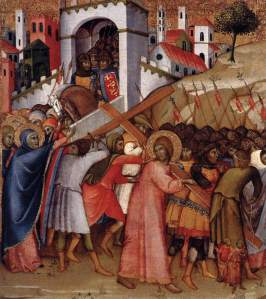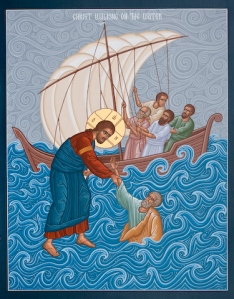Here is the text from my message yesterday as we started our new series Jesus For President. I've also included the discussion questions that followed the message. So today we begin a three week series entitled Jesus for President roughly based off of the book of the same name, and also as a tie into to the election season that we are currently undergoing.
Over the next 3 weeks we’ll be looking at what it would be like if Jesus was President, what his platform would be if he did run for president, what type of “president” he would be. We’ll also look at what it looks like to be about the Kingdom of God and ultimately where we put our hope, trust and longing in.
Our theme today is Before their were Kings and Presidents. Next week we’ll be looking at: A New Kind of Commander-in-Chief. And the following week we’ll be looking at: When the Empire gets Baptized.
So today, as I mentioned our theme is Before there were Kings and Presidents, and to look at this theme we’ll be looking at 1 Samuel 8. 1 Samuel 8 is the account of the people of God, their dealing with the judge/prophet named Samuel and the radical turning point in the history of the people of God.
So let’s look at 1 Samuel 8 together and see what it might say to us gathered together in a different culture, a different time, and a different political system. 1 Samuel 8 says, “When Samuel grew old, he appointed his sons as Israel’s leaders. The name of his firstborn was Joel and the name of his second was Abijah, and they served at Beersheba. But his sons did not follow his ways. They turned aside after dishonest gain and accepted bribes and perverted justice. So all the elders of Israel gathered together and came to Samuel at Ramah. They said to him, “You are old, and your sons do not follow your ways; now appoint a king to lead us, such as all the other nations have.” But when they said, “Give us a king to lead us,” this displeased Samuel; so he prayed to the LORD. And the LORD told him: “Listen to all that the people are saying to you; it is not you they have rejected, but they have rejected me as their king. As they have done from the day I brought them up out of Egypt until this day, forsaking me and serving other gods, so they are doing to you. Now listen to them; but warn them solemnly and let them know what the king who will reign over them will claim as his rights.” Samuel told all the words of the LORD to the people who were asking him for a king. He said, “This is what the king who will reign over you will claim as his rights: He will take your sons and make them serve with his chariots and horses, and they will run in front of his chariots. Some he will assign to be commanders of thousands and commanders of fifties, and others to plow his ground and reap his harvest, and still others to make weapons of war and equipment for his chariots. He will take your daughters to be perfumers and cooks and bakers. He will take the best of your fields and vineyards and olive groves and give them to his attendants. He will take a tenth of your grain and of your vintage and give it to his officials and attendants. Your male and female servants and the best of your cattle and donkeys he will take for his own use. He will take a tenth of your flocks, and you yourselves will become his slaves. When that day comes, you will cry out for relief from the king you have chosen, but the LORD will not answer you in that day.” But the people refused to listen to Samuel. “No!” they said. “We want a king over us. Then we will be like all the other nations, with a king to lead us and to go out before us and fight our battles.” When Samuel heard all that the people said, he repeated it before the LORD. The LORD answered, “Listen to them and give them a king.” Then Samuel said to the Israelites, “Everyone go back to your own town.” So in this story we find Samuel getting older and due to his increasing age he began thinking of a succession plan. Who would follow in his footsteps, and continue the work that he was doing. He was wondering who he could leave his legacy to. And because he had sons, the answer to him was very easy, why not appoint his sons as judges for Israel. But it wasn’t just as simple as appointing them Judges for Israel.
You see, his sons, Joel and Abijah, weren’t the kind of sons that you would hope for, as a prophet and judge. They were kind of like the stereotypical “Pastors’ kids. You know what I’m talking about. You see they didn’t walk in the ways of their father. They decided to make their own path. They went after fame and fortune, so to speak by going after dishonest gain and accepted bribes and also perverted justice. These things were explicitly forbidden in the Mosaic law.
But the elders of Israel challenged Samuel’s succession plan, and probably rightly so. His kids weren’t the kind of kids that you would want to be leading God’s people. They didn’t exactly follow in the ways of God or their father. So the elders decide to approach Samuel and let him know their thoughts and feelings around the succession plan. In verse 5 we read, ““You are old, and your sons do not follow your ways; now appoint a king to lead us, such as all the other nations have.” The elders cite Samuel’s age and the misconduct of his sons as justification for their request for a king. It soon becomes apparent however, that the more basic reason for their request was a desire to be like the surrounding nations- to have a human king as a symbol of national power and unity who would lead them in battle and guarantee their security. They were declaring that they didn’t want God to reign over them and be their king.
They wanted a king that they would see and touch and worship. With growing fear of neighboring empires like Assyria and Babylon, they were succumbing to the empty dream of domination. The very people who suffered so deeply for the things kings do demanded another king. Something whispered inside the Israelites that they needed a king “to be like the other nations”- a paralysis of faith and imagination. They still didn’t get that they were to be a people “set apart” from the nations and from the patterns destroying them. Moses may have freed their bodies, but Pharaoh still colonized their conscience.
And so Samuel is distraught. He realizes that what the people are saying is that they don’t want to live under the rule and reign of the true King, and instead live under the rule and reign of a flawed, broken and human king. They didn’t trust God to save them and deliver them. They wanted a human king to save them and deliver them. They wanted someone to rule with pomp, and power and military might, and not a God that was calling them back to their original calling as a people, that of being a blessing to all nations. (see Genesis 12:1-3)
And so when he was distraught by the demands of the elders, what did he do? Something that we all should do (whether distraught or not) turn to our King and pray. And the King of Heaven and Earth responds to Samuel in verse 7, “Listen to all that the people are saying to you; it is not you they have rejected, but they have rejected me as their king.” And then the Lord tells Samuel what to share with the Elders, about what a Human King will demand from them, nothing more than total allegiance. And so we see Samuel sharing everything that the Human King will demand of his people in verses 11-18.
But to no avail. The people still demanded a human King and turned from the one true King and Kingdom. Putting their hope and trust not in the King of the Universe to save them, redeem them, and form them into a set apart nation of blessing, but putting their hope and trust in a human king that would enslave them, use them, tax them, and demand allegiance from them. And to form them into a nation, like all other nations, and not a nation of blessing but of conquest, power, and might. And the rest of the Old Testament bares this out, that they forgot who they were called and set apart of be, and the Kings mostly led the way not into the true calling of the people of God, but in the way of all the other nations.
So you might be asking yourself, what does that mean for us today? What is the relevance to my day in and day out life here in the USA where we don’t have a King of the land, but a President that we elect? If our series is called Jesus for President, what does that have to do with our text that we looked at this morning?
Well, that is where our discussion will take us now. Here are some of the questions that we’ll be talking and wrestling through and seeking to apply what we have just looked at in 1 Samuel 8. 1. What or Who are you putting your hope, allegiance, and trust in? 2. What or who is the King that you are living under their reign and rule? Is it the King of Heaven and Earth or is it a King of another kind? 3. What Kingdom are you seeking to live out in your everyday life?
Discussion Questions: 1. What thoughts, comments, insights, questions, etc.. do you have regarding the message and the Scripture? 2. What or Who are you putting your hope, allegiance, and trust in? 3. What or who is the King that you are living under their reign and rule? Is it the King of Heaven and Earth or is it a King of another kind? 4. What Kingdom are you seeking to live out in your everyday life? 5. What is God saying to you and what are you going to do about it? What is God saying to us and what should we do about it?







